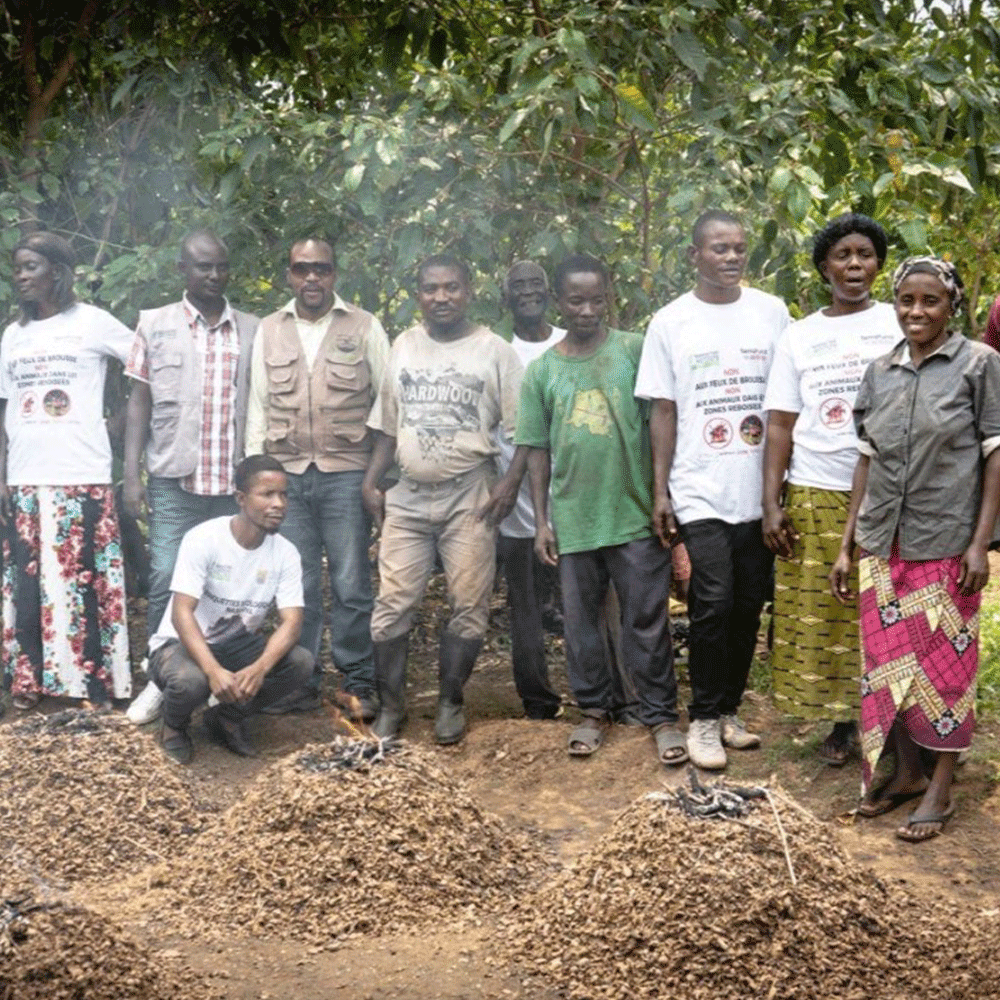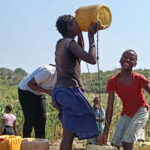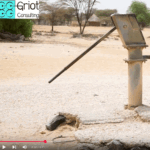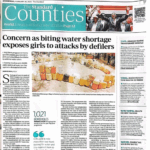
It is two weeks since we left the troubled border region that divides #Burundi from Eastern DR Congo.
Despite an international summit in Tanzania , with heads of government debating the fighting, the problems are escalating.
This weekend has seen a further provincial capital fall into the hands of the M23 .
Bukavu, a University city at the southern end of Lake Kivu, is the second major city to fall in a matter of weeks.
Seemingly the M23 rebels arrived and seized control, without much resistance. It has been a terrifying land-grab since Christmas.
Lightning strokes that have left thousands dead and countless hundreds of thousands displaced from their homes or fleeing over the boarders.
One of them is Amiable Shukuru.
He is a single man, a gentle sole with soft eyes and an easy smile. He lectures, in financial management and accounting, part-time at the University in Bukavu – at least he did.
Yesterday, on Valentine’s day he left his friends and loved ones and fled across the border into Rwanda.
“It is just not safe to stay,” he said, “I will try and find my way to Kigali and from there to Nariobi in Kenya.”
Amiable’s other part-time job is as Executive Director for Griot Ltd’s partner organisation Nabaya Food Institute, based about 100km from Bukavu in the province’s second city #Uvira.
Founder and chairman Guillain Nabaya is also making preparations to leave.
Though the M23 has not yet staked a claim on Uvira it’s believed it will fall too – and soon.
Access in and out of Uvira is already difficult.
The border crossing to Burundi is closed and boats out of Uvira, along lake Tanganyika to safe cities in the south are fully booked.
“We have booked a flight from Kalemie to Lubumbashi,” said Guillain, “but I cann’t get 11 tickets for my family on the boat from Uvira to Kalemie.
“Everyone is trying to leave. It’s chaos”.
The wave of fear that. has spread south is not without cause.
The tales of brutality that have followed the M23 through North and South Kivu provinces are shocking.
Prison releases in Goma left women inmates raped and burned. Dead bodies were left lying in the streets, often for days. Mass rapes, sometimes of children. Soldiers of fortune (apparently fighting on the DRC Government side) forced to return to Romania in their hundreds, following defeat by the rebels.
The most distressing to read are the reports suggesting sexual violence is being used as a strategic tactic.
It certainly seems more than testosterone overload and the actions of a handful of rogue soldiers.
‘It is perhaps more dangerous to be a woman than a soldier in an armed conflict.’ – Major General (ret.) Patrick Cammaert, former UN Division Commander for Eastern DRC (MONUC)
The website of the women’s rights programme of the United Nations describes in graphic detail far-reaching impacts of rape and other sexual violence in war.
It can leave the survivors with emotional trauma and psychological damage, physical injuries, unwanted pregnancies, social stigma and sexually transmitted infections such as HIV.
The fear of sexual violence holds communities hostage and prevents women and girls from participating in public life or attending school.
The costs and consequences last for generations. – unwomen.org
And, of course, sexual violence has been a significant element in conflicts in the Great-Lakes region of East and Central Africa over the last 30 years.
Its suggested between 250-500,000 rapes were perpetrated during the Rwandan genocide in 1994.
Estimates of rape offences in DRC since then are around 200,000.
It’s widely agreed that the data are a massively underestimated.
And the problems don’t stop once a peace agreement has been signed.
Rape and sexual violence is a war-crime and a crime against humanity.
Ground-breaking legal rulings during the 1990s successfully created precedents for rape in war being viewed as a genocidal act.
But they have limited impact.
The UN has studied tens of cases of war since the 1989 and found only 10 peace declarations that have mentioned rape and sexual violence.
It has also been observed that perpetrators are often rewarded in the peace settlement, rather than freedoms being granted for the victims to pursue justice and individuals being held to account.
While I have been writing this article the fighting has reach Uvira.
Our partner Guillain Nabaya is lying on the floor, trying not to be visible.
He’s just been at the port, where he has secured tickets for a ship, scheduled to leave the port tomorrow morning.
But the fighting has broken out on Main Street – cutting him off from his wife and children.
The programme he runs, alongside us in the rural communities around the city will continue.
It is an artisanal, agricultural operation that will not. Attract the attention of the fighters.
But the managers need to get out fast, regrouping inside #DRC or sometimes outside DRC.
As I sign-off I extend to each individual affected the salutation that has kept me safe on my travels down the years: “Vya con Dios” – (Go with God).




